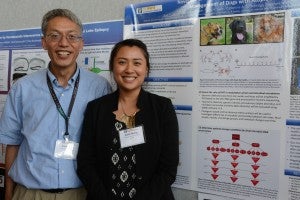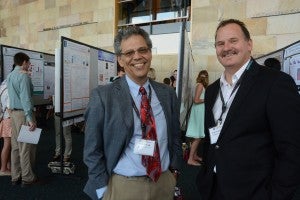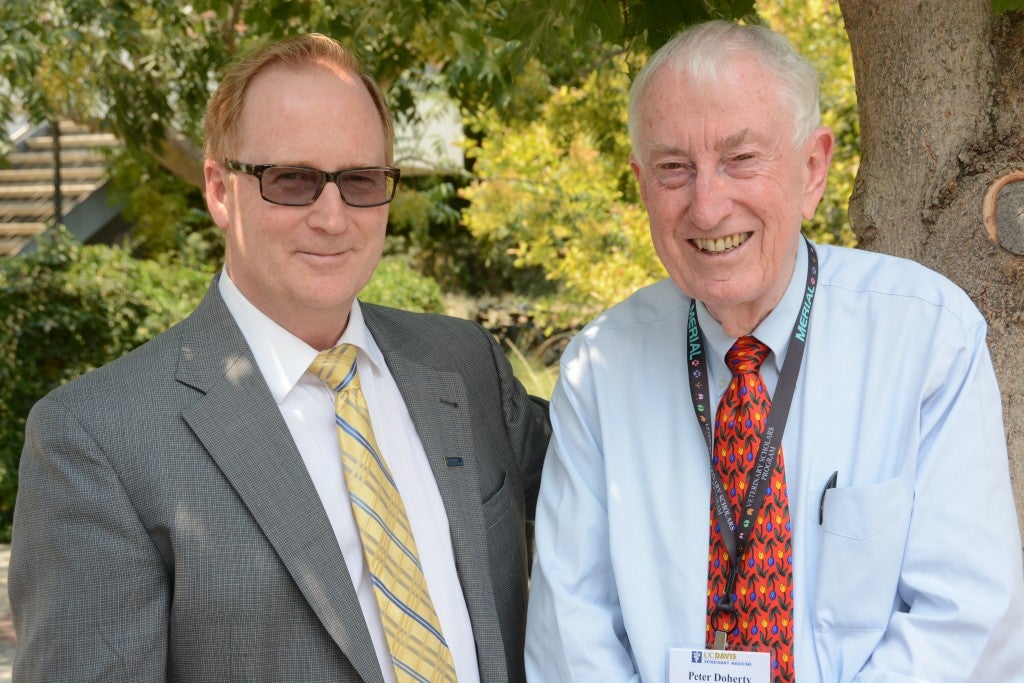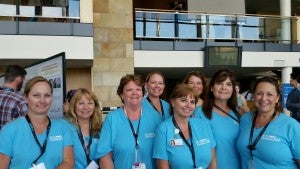“I get a lot of credit for work a whole group of people do. The collaborative research happening now is really being driven by young people.” – Peter Doherty, DVM, PhD, Nobel Laureate, at the Merial-NIH National Veterinary Scholar Symposium held at UC Davis, July 30-August 2, 2015
This past weekend, I could not have been more proud of our team in the Office of Research and Graduate Education and the many volunteer faculty, staff, and students from our school, who worked very hard to plan and execute the Merial-NIH National Veterinary Scholars Symposium.
The Symposium brought together over 600 veterinary students and their mentors from across the nation. The event was highly organized and provided an outstanding forum to allow students to network with fellow students and scientists from many different disciplines and fields of study. A palpable excitement permeated the conference held in the Mondavi Center for the Arts, the UC Davis Conference Center and the Walter A. Buehler Alumni Center.

Katti Horng, a dual degree DVM/Ph.D. student in the VSTP program presented her research during the poster session. Dr. Xinbin Chen directs the VSTP program.
The students in attendance represent the leaders of tomorrow in veterinary medicine, biomedical research, and in our society. We need them to address the complex challenges being faced in the world. Who better than veterinary scientists to lead this effort in addressing societal needs? The issues we face in our complex world are daunting, ranging from climate change to pandemic infectious diseases. We need the talent, knowledge, skills, and energy of the new generation of scientists to face this uncertain future. The symposium provided a rallying cry for them to exchange ideas, learn from each other, make new friends, and face these challenges together.
In our schools and colleges of veterinary medicine across the world, innovative approaches and new concepts are being developed on a daily basis. The Merial-NIH Symposium fostered a vibrant atmosphere to encourage innovative thinking to promote the health of animals, people, and the environment. From the plenary session featuring Dr. Peter Doherty, Nobel Prize recipient, to breakout sessions highlighting the new leaders in veterinary medicine and biomedical sciences, students were asked to consider their career options by keeping their eyes open and to question dogma. The essence of the symposium was to create a stimulating atmosphere to inspire students to consider a career that matches their passions to a cause that strives to make the world a better place to live.

Dr. Isaac Pessah, Associate Dean for Research and Graduate Education Programs, visits with Kurt Hankenson, Associate Professor at Michigan State University during one of the poster sessions.
A theme visibly present throughout the symposium was team science focused on real-world problems. To truly impact the health of animals, people and the environment, we must all think globally and act locally, striving to use our science to solve the issues faced by all of us in a world that is constantly becoming more interdependent. For me, the symposium reinforced my belief that collaborative team science and strong research programs are fundamental to solving the problems faced by our society in both animal and human health. Few of us can work in isolation. We are highly dependent upon the collective talents of those with whom we work on a daily basis.
For all of us, we must be willing to listen to each other to learn new approaches in our work. This movement of ideas across disciplines fuels innovation and is fundamentally important to discovery. We must seize opportunities to learn from our colleagues, patients, students, and our stakeholders. Ideas come from all of these sources to guide and influence us, but only if we are open and willing to listen. I reminded the students in attendance that each of them has their own unique story and an inner drive. I asked them to continue to question more, think beyond their comfort zone, take risks in their career, and have the courage to design a new future, built on the work of the scientists that came before them, but forged by the creativity and energy of the next generation.


